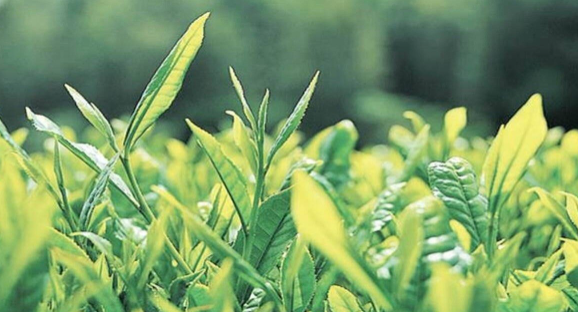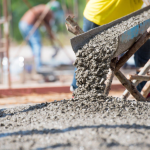Scale your Business with Tea Export from India
How can I register with the Tea Board of India and obtain a tea export license?
The Tea Board of India is an export-promotion body set up by the Indian government to encourage the growth of the tea export industry. Here’s a breakdown of its tasks and roles.
Tea Board of India
Teas from India are famous all over the world, including black, herbal, green, Darjeeling, Assam, Nilgiri, and others. India is the world’s second-largest tea producer, which is surprising. Under the Tea Act of 1953, the Tea Board of India was founded in 1954 to promote the export of this widely produced beverage in India. The Tea Board of India is headquartered in Kolkata and has over 15 offices across the country.
The role and activities of the Indian Tea Board
The Tea Board of India is a statutory body of the Central Government under the Ministry of Commerce and Industry, with an aim to make India one of the leading producers and suppliers of premium tea in worldwide markets. The tea board has the following functions and responsibilities:
- Provide technical assistance to tea farmers and cultivators in the production and marketing of high-quality tea.
- Through workshops on novel production, packaging, and marketing strategies, tea quality inspection, and training programs, promote activities that boost tea export.
- Conduct research and development work in India to boost tea production.
- Through labor welfare programs, provide cash assistance to tea plantation workers.
- Provide technical breakthroughs to member-manufacturers and disseminate essential instruction to the unorganized sectors of small-scale tea growers.
The Tea Board of India’s mission is to promote tea production innovation, both qualitative and quantitative. It conducts market research, analyses, and statistics on the expansion of India’s tea exports as well as implement government-assigned strategies to boost tea exports.
The Tea Board of India promotes several types of tea.
Assam, Darjeeling, Nilgiri, Sikkim, and Tripura are among the Indian tea varieties promoted by the tea board. Darjeeling Tea is one of the most well-known types of tea grown and sold in India. The Tea Board of India has regulated Darjeeling tea production and export since its inception. The Darjeeling Tea Board has a specialized team that maintains and authentcates the original Darjeeling Tea by awarding it a distinctive logo (the Darjeeling logo) that can be recognized internationally. To maintain quality and avoid duplication, the board has developed a certification program. Darjeeling Tea, according to it, is a sort of tea that:
- is cultivated and produced in one of India’s 87 registered tea gardens;
- is processed and made in a plant located within the registered geographical area; and
- when tasted by appointed tea testers, possesses the distinctive smell, taste, and aroma of real Darjeeling tea.
The Tea Board of India issues licences:
1. Permission to use land as a new tea estate
According to the tea board’s requirements, tea farmers who want to plant tea on virgin soil must register as newcomers. Their property must be registered as a new tea estate by filling out an application on the government’s website.
2. Tea waste management licence
This license is provided to prevent the mishandling of tea waste by ensuring that it is discarded securely and that usable residue is reused. To receive this license, the applicant must apply through the Tea Board of India’s official website.
3. Exporter license
According to the Tea Control Order, 1957, a valid exporter license is one of the most important licenses required to export tea from India. The applicant must complete and submit Form A, Exporter License Application, on the Tea Board of India’s official website, following the relevant requirements.
4. Tea Warehouse Permit
An exporter must get a Tea Warehouse License from the board before storing tea in a warehouse.
5. Certificate of Registration and Membership (RCMC)
An RCMC from the Tea Board is required to export tea from India.
A step-by-step approach to registering with India’s Tea Board.
The Tea Board of India, like other export promotion bodies in India, issues an RCMC to its registered members and exporters. This is a necessary document for exporting tea from India.
The Tea Board of India requires the following documents in order to receive RCMC:
- A proposed application form with all essential information
- DGFT-issued Import Export Code (IEC)
- Required application fees
How can you apply for the RCMC?
You can get RCMC as a seller or exporter via the eGICCS (eGovernance Initiatives for Citizen-Centric Services) portal5.
Go to the eGICCS website and input your email address, contact information, and business name to log in.
For the registration fee, fill out forms 19-A and 19-B and make a DD/cheque payable to ‘TEA BOARD.’
Complete the application form and attach your IEC as well as any other needed documents.
In most cases, the RCMC registration is issued within two working days from the date of receipt of the application after verification. You can export tea from India utilizing e-commerce once you’ve received an RCMC, making your worldwide expansion journey straightforward and easy. With Amazon Global Selling, an online exports program, you may sell tea worldwide from India in more than 200 countries and territories, including foreign marketplaces in the United States, the United Kingdom, Germany, the United Arab Emirates, Australia, and Japan. Amazon Global Selling helps tea exporters expand seamlessly to new markets by assisting with inventory, storage, international shipping, and export documents.











